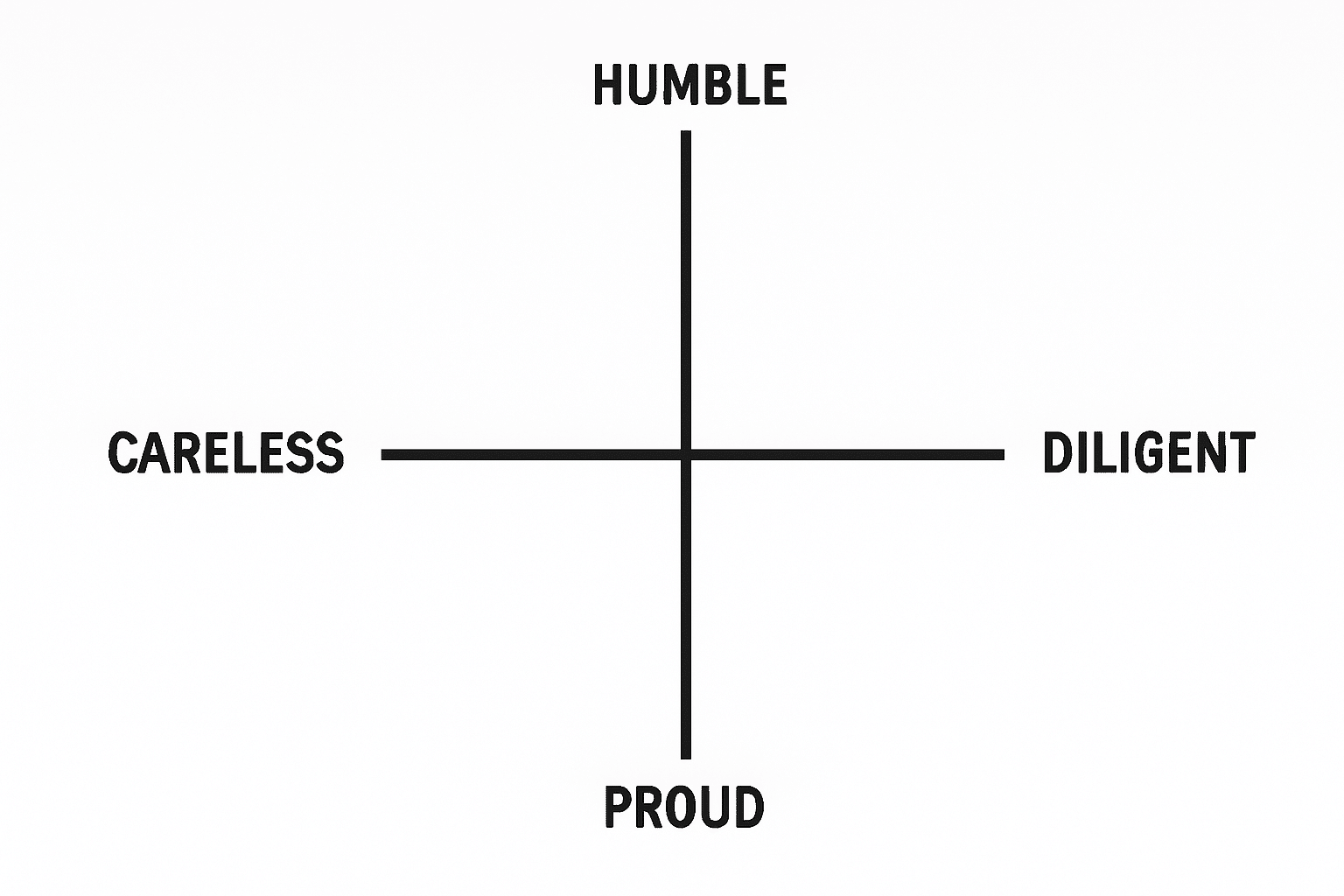Article
Why You Must Plant with Excellence—and Humility
To pursue excellence is to honor God with diligence and devotion.

In Christian ministry, few words spark as much nervousness as excellence. On the one hand, the word carries rich biblical resonance. Paul urges the Corinthians to “excel in everything—in faith, speech, knowledge, and in all diligence, and in your love for us” (2 Corinthians 8:7). He calls the Philippians to “approve what is excellent” (Philippians 1:10, ESV). To pursue excellence is to honor God with diligence and devotion.
Excellence also connects deeply with the Old Testament idea of sacrifice. Israel was called to bring offerings that were unblemished—not careless, not second-rate, but their best. This was no accident: God is completely worthy of our best.
Yet again and again, the prophets rebuked Israel for thinking that a flawless lamb could cover over a faithless heart. “Stop bringing meaningless offerings!” cries Isaiah (see Isaiah 1:13). God wanted both: wholehearted devotion and wholehearted offering. The two together made worship beautiful.
That same tension is alive in ministry today. Some churches and leaders bring heartfelt devotion but sloppy offerings. Others bring polished offerings but hollow hearts. How do we hold both together? One way is to picture a simple matrix.

On the x-axis, we place excellence—ranging from careless to diligent. On the y-axis, we place heart posture—stretching from proud and self-reliant at the bottom to humble and God-reliant at the top. This creates four quadrants, each describing a distinct ministry culture. Where does your church lie?
This picture helps us name what is often felt but left unsaid: that excellence without humility becomes destructive, while humility without diligence becomes careless. Only when both meet—excellence joined with a humble heart—does ministry become “a living sacrifice, holy and pleasing to God” (Romans 12:1).
The Four Quadrants of the Ministry Matrix
(a) Top Right: Excellence with Humility
This is the sweet spot. Ministry here is diligent, thoughtful, and prepared—but the motivation is worship, not self. Excellence is offered not to impress but to both honor the Lord and serve His people. It is like Israel bringing an unblemished lamb with reverence and repentance.
In this quadrant, sermons are carefully crafted to serve, not to shine. Music is practiced to lift hearts, not egos. Hospitality is intentional, not for reputation but simply for welcome. Teams are stretched yet supported, challenged yet cherished. There is seriousness about craft, but also joy and freedom because the outcome is entrusted to God.
(b) Top Left: Humility with Carelessness
Here, the heart is sincere, but the offering is blemished or slapdash. Leaders love God and people, yet perhaps under-prepare or neglect responsibilities. They may excuse it with “God knows my heart,” but Scripture shows us that God cares about both heart and offering. Malachi rebukes those who brought crippled animals to the altar (Malachi 1:8). Love without labor dishonors the Lord who gave His best.
(c) Bottom Right: Excellence with Pride
This quadrant looks impressive but is actually hollow. Services are slick, teams are polished, programs are seamless—but the heart posture is self-reliant. Like Israel offering sacrifices while at the same time plotting injustice, the motions are correct but the devotion is absent.
This is perhaps the most dangerous quadrant because it so closely resembles the top-right. Numbers grow, the brand thrives, social media sparkles. Yet staff may feel bullied, volunteers drained, and congregations underfed. “Excellence” becomes a mask for control, or an idol that demands ever-greater sacrifice from people rather than offering sacrifice to God.
The fruit is telling: anxiety rather than joy, burnout rather than peace, polish rather than holiness. As Jesus said of the Pharisees, they are like whitewashed tombs—beautiful outside, decaying within (Matthew 23:27).
(d) Bottom Left: Pride with Carelessness
Here, ministry is neither diligent nor humble. Offerings are blemished, and the heart is hard. Corners are cut, people are neglected, and leaders excuse themselves with arrogance. This is the least attractive quadrant—a messy place to be—harmful to people, dishonoring to God, and unsustainable.
Resisting the Pull of the Bottom Right
If we agree that the top-right quadrant is the place we want to be—excellence with humility—then I guess our pressing question is how to resist the drift to the bottom-right? For many leaders, especially in cultures that prize efficiency and scale, the temptation is real. What begins as a sincere offering can end up slipping into performance. Here are elements to help us fight the drift:
(a) Theological Guardrails
Remember that we are called to present our “bodies as living sacrifices” (Romans 12:1). God wants both: an unblemished offering and a surrendered heart. To pursue one without the other is distortion. We are jars of clay (2 Corinthians 4:7), and yet jars that are called to be clean and consecrated. This keeps excellence as a form of worship, not an idol.
(b) Cultural Practices
Carefully shape a ministry culture that honors sacrifice rightly. Celebrate the unseen acts of devotion—the quiet prayer, the late-night pastoral visit, the person who serves faithfully without recognition. Value faithfulness as much as fruitfulness. By shaping what is praised, you shape what is pursued.
(c) Pastoral Posture
Leaders must care for their teams as people, not content producers. A ministry that demands unblemished offerings but crushes the hearts of its people misses the whole point. The God who asked for spotless lambs also said, “I desire steadfast love, not sacrifice” (Hosea 6:6). Shepherds should embody both: calling people to give their best, while pastoring them with gentleness.
(d) Personal Disciplines
Cultivate rhythms of dependence (properly!). Pray before you prepare, and after you deliver. Confess your temptation to perform. Practice Sabbath as an act of sacrifice—laying down productivity to declare that God rules the world (and you don’t). Bring your best, but then lay it on the altar with open hands.
Conclusion
Excellence in Christian ministry is not the enemy of grace; it is the overflow of grace. But God desires more than polish. He desires—deserves—both the unblemished offering and the surrendered heart. The prophets warned against sacrifices that looked right but were offered from hearts that were wrong. The matrix helps us to see the same danger today.
The top-right quadrant—excellence with humility—is the place of “both and”—ministry that is both beautiful and Christlike, both skillful and Spirit-dependent. Here, we bring our best not to perform but to worship, not to build our name but to glorify His.
It is the ministry that is both unblemished and wholehearted—the kind of sacrifice that pleases God.




